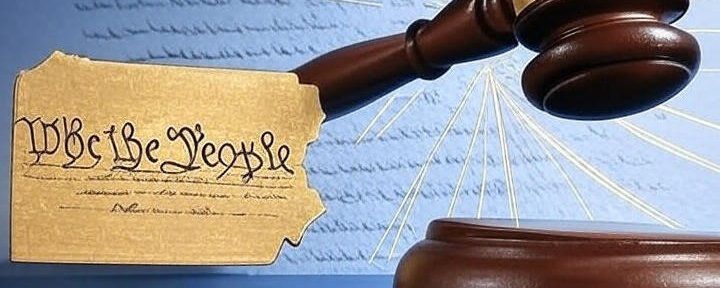


Supreme Court Rejects "Background Circumstances" Rule in Title VII Cases: What It Means for You
Supreme Court Rejects "Background Circumstances" Rule in Title VII Cases: What It Means for You
In a groundbreaking decision this past June, the Supreme Court delivered a powerful message about fairness in the workplace: Title VII of the Civil Rights Act of 1964 protects all individuals from employment discrimination—period. In Ames v. Ohio Department of Youth Services (2025), the Court struck down a rule that had unfairly stacked the deck against certain employees seeking justice. This ruling is a game-changer for anyone who believes they’ve been discriminated against at work, and at Schnee Legal Services, LLC, we’re here to help you understand what it means and how we can fight for your rights.
The Case: A Fight for Equal Treatment
Marlean Ames, a heterosexual woman working for the Ohio Department of Youth Services, faced a double blow. She applied for a promotion in 2019, only to see it go to a lesbian colleague. Days later, she was demoted from her role as a program administrator, with a gay man stepping into her former position—and a significant pay cut following close behind. Ames fought back, filing a lawsuit under Title VII, alleging discrimination based on her sexual orientation.
The lower courts dismissed her case, relying on a Sixth Circuit rule known as the “background circumstances” test. This rule demanded that plaintiffs like Ames—members of so-called “majority groups”—provide extra evidence to prove discrimination, beyond what others had to show. Specifically, she needed to demonstrate that her employer was the “unusual” type that discriminates against the majority, a hurdle not imposed on minority-group plaintiffs.
The Supreme Court’s Decision: Leveling the Playing Field
The Supreme Court said enough is enough. In a unanimous opinion, the justices rejected the “background circumstances” rule, declaring it incompatible with Title VII’s clear language. The statute prohibits employers from discriminating against “any individual” based on race, color, religion, sex, or national origin—without carving out exceptions or higher burdens for anyone. As the Court put it, “Congress left no room for courts to impose special requirements on majority-group plaintiffs alone.”
This decision dismantles a judicial roadblock that had persisted in several circuits, including our own Sixth Circuit, and reaffirms that the same rules apply to everyone under Title VII. Justice Thomas, joined by Justice Gorsuch in a concurrence, even took aim at the broader McDonnell Douglas framework—a legal test often used in discrimination cases—hinting that it, too, might be ripe for reevaluation due to its complexity and lack of statutory grounding.
What This Means for You
This ruling is a victory for fairness, and it could open the door for countless employees who’ve been unfairly treated at work. Here’s the takeaway: if you’ve been denied a promotion, demoted, fired, or otherwise mistreated because of your race, sex, religion, or any other protected trait, you don’t need to jump through extra hoops just because you’re part of a “majority” group. The Supreme Court has made it clear that Title VII’s protections are universal.
- Have you been passed over for a job or promotion in favor of someone else, and suspect your race, sex, or orientation played a role?
- Were you disciplined or let go under circumstances that don’t add up, leaving you wondering if discrimination was the real reason?
- Are you unsure whether your situation qualifies as discrimination under the law?
If any of these sound familiar, this decision strengthens your ability to hold your employer accountable. You deserve a workplace free from bias, and the law is on your side-now more than ever.
Why Schnee Legal Services, LLC?
At Schnee Legal Services, LLC, we’re not just lawyers—we’re advocates for justice. With years of experience navigating the intricacies of employment law, I’ve seen firsthand how discrimination can upend lives and livelihoods. Our firm specializes in Title VII cases, and we’re well-versed in the latest legal developments, like the Ames decision, that can make or break your claim.
We know these cases can feel daunting. The legal system is complex, and employers often have deep pockets and skilled counsel. That’s where we come in. Led by me, J. Chadwick Schnee, Esq., our team offers:
- Personalized attention: We listen to your story and tailor our approach to your unique situation.
- Aggressive representation: We fight tirelessly to protect your rights and secure the compensation or relief you deserve.
- Deep expertise: From filing claims with the EEOC to litigating in federal court, we’ve got the know-how to guide you every step of the way.
Contact Us Today
Don’t let discrimination go unchecked. Whether you’re a manager, an entry-level worker, or anywhere in between, the Ames decision underscores that you have rights worth defending. At Schnee Legal Services, LLC, we are happy to review your case and discuss your options. Call us at (717) 400-5955 or email me directly at chadwick@schneelegal.com to get started. Time is critical in employment cases, with strict deadlines for filing claims, so don’t wait. Let’s talk about how we can help you seek justice and reclaim what’s rightfully yours.
Final Thoughts
The Supreme Court’s ruling in Ames v. Ohio Department of Youth Services is a step toward a more equitable workplace for all. It’s a reminder that discrimination doesn’t discriminate-and neither should the law. At Schnee Legal Services, LLC, we’re committed to turning that principle into action for our clients. If you’re ready to stand up to workplace wrongs, we’re ready to stand with you. Reach out today-your first step toward justice is just a call or click away.











